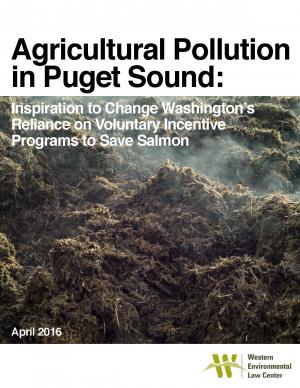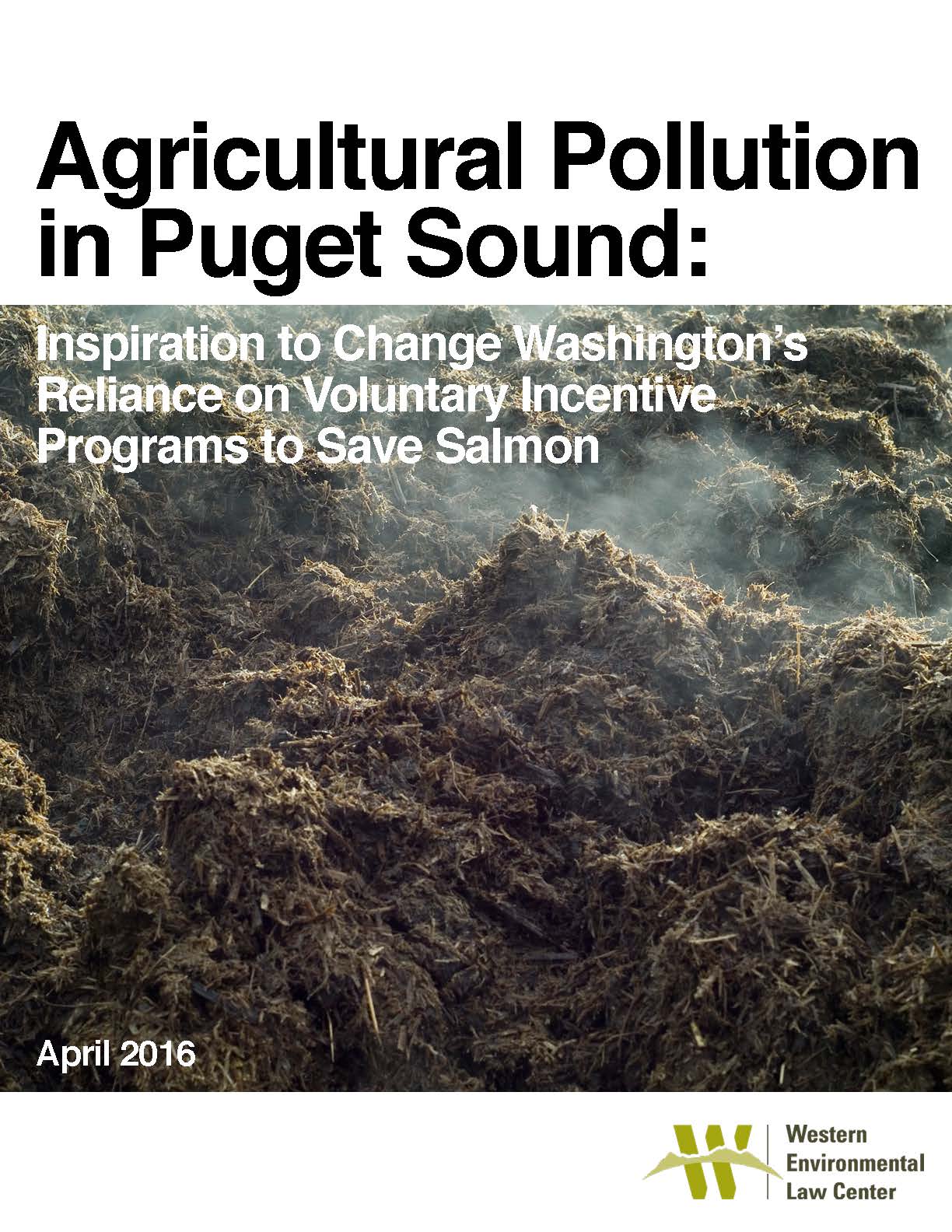Seattle
The Western Environmental Law Center announces a new report, Agricultural Pollution in Puget Sound: Inspiration to Change Washington’s Reliance on Voluntary Incentive Programs to Save Salmon.
Puget Sound’s poor water quality is a problem for ecosystem health, wild salmon and shellfish. Our state and federal government spend taxpayer money on programs designed to fix the pollution problem, but recently only two of 17 reporting regions in Puget Sound showed any improvements in water quality. The Washington Department of Ecology acknowledges significant declines in Puget Sound water conditions and the Puget Sound Partnership reported in 2015 that of 27 vital sign indicators, only 10 show improvements and “few are at—or even within reach of—their 2014 interim targets.”
Now, with the anticipation of adding more than 1 million people to the Puget Sound region in the next 15 years and increasing climate change and ocean acidification, the quality of our waters and the health of Puget Sound are expected to decline irreparably if we do not make swift and effective changes to our current regulatory and conservation efforts.
“Unregulated agricultural pollution is degrading Puget Sound. There is an overwhelming desire and commitment to save our treasured salmon and shellfish resources, but the state’s largely voluntary approach to preventing agricultural pollution has impeded salmon recovery efforts and must change,” said white paper author Andrea Rodgers. “It is possible to have sustainable agriculture and healthy salmon populations in the Puget Sound region, but we must enforce and implement our existing pollution control laws to get there.”
 This report details the most critical and contentious aspects of one of the largest threats to healthy wild salmon populations in the state of Washington: industrial agricultural pollution. WELC analyzed the policies and practices that have led to declining salmon populations, and the present (largely voluntary) regime that has perpetuated those problems.
This report details the most critical and contentious aspects of one of the largest threats to healthy wild salmon populations in the state of Washington: industrial agricultural pollution. WELC analyzed the policies and practices that have led to declining salmon populations, and the present (largely voluntary) regime that has perpetuated those problems.
We view this analysis as an eye-opening recording of the history of state and federal regulation of agricultural pollution as well as the legal framework designed to prevent pollution in Washington state. With more than 900 factual citations, the report will stand up to scrutiny from entities currently perpetuating misinformation in Washington about industrial agriculture pollution’s effects on water quality.
The report also provides science-based solutions, including best management practices regulatory agencies should adopt and enforce to reduce pollution from the agricultural sector. The content of this report has been exhaustively researched and reviewed, and we hope will serve as a cornerstone in the effort to improve our water quality and help recover Puget Sound’s beloved wild salmon.
Support for this white paper was provided by the Puget Sound Stewardship and Mitigation Fund, a grant making fund created by the Puget Soundkeeper Alliance and administered by the Rose Foundation for Communities and the Environment.
Contact:
Andrea Rodgers, attorney, 206-696-2851, rodgers@westernlaw.org
Learn more about WELC’s efforts to further sustainable agriculture in Washington state here.

